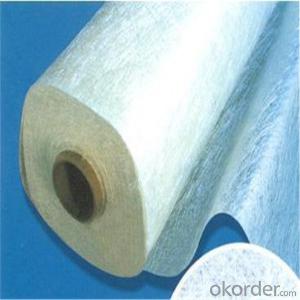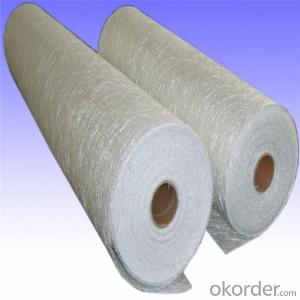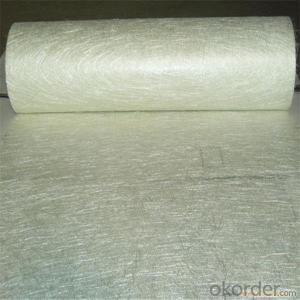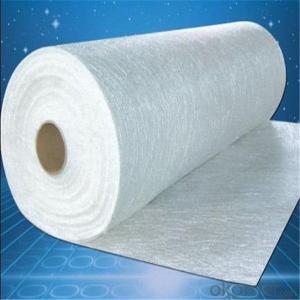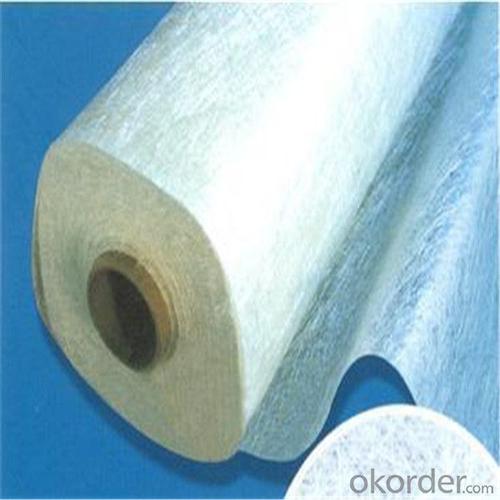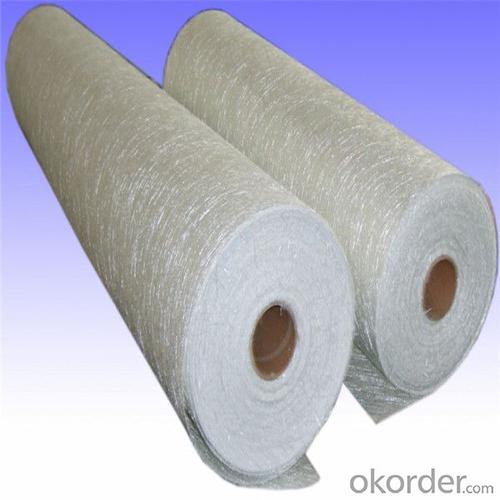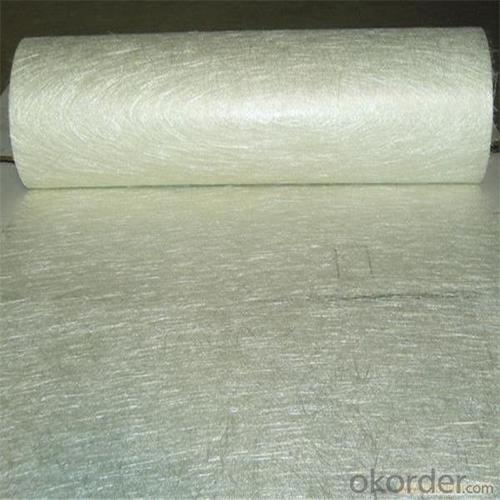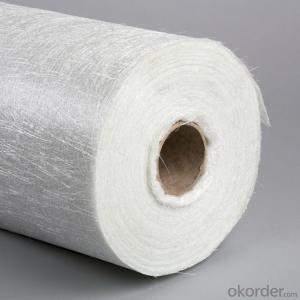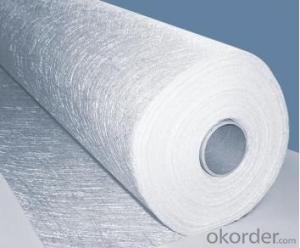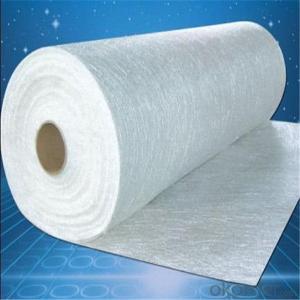Fiberglass Mat Tissue Chopped Strand Mat EMC100 100gsm
- Loading Port:
- Tianjin
- Payment Terms:
- TT OR LC
- Min Order Qty:
- 100 m.t.
- Supply Capability:
- 20000 m.t./month
OKorder Service Pledge
Quality Product, Order Online Tracking, Timely Delivery
OKorder Financial Service
Credit Rating, Credit Services, Credit Purchasing
You Might Also Like
Quick Details
| Technique: | Chopped Strand Fiberglass Mat (CSM) | Dimensions: | 450gsm | Mat Type: | Continuous Filament Mat |
| Fiberglass Type: | E-Glass | Softness: | softness | Place of Origin: | Jiangxi, China (Mainland) |
| Brand Name: | cnbm | Model Number: | 450gsm | color: | white |
| fiberglass type: | E glass | product: | e-glass powder chopped stand mats | binder: | powder or emulsion |
| width: | 1040 or 1270mm, as your requirement | weight: | 30 or 45kg/roll | paper tube diameter: | 90mm |
| outer diameter of roll: | 256mm | packing: | plastic film+carton box + pallet |
Packaging & Delivery
| Packaging Details: | plastic film+carton box + pallet |
| Delivery Detail: | 15-20days |
Specifications
1.e-glass powder chopped stand mats
2.binder:power or emulsion
3.width:1040mm or 1270mm
4.weight:450gsm
Picture
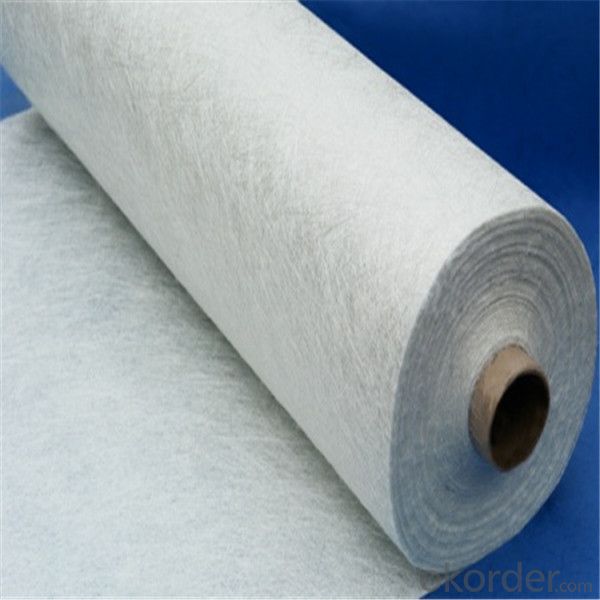
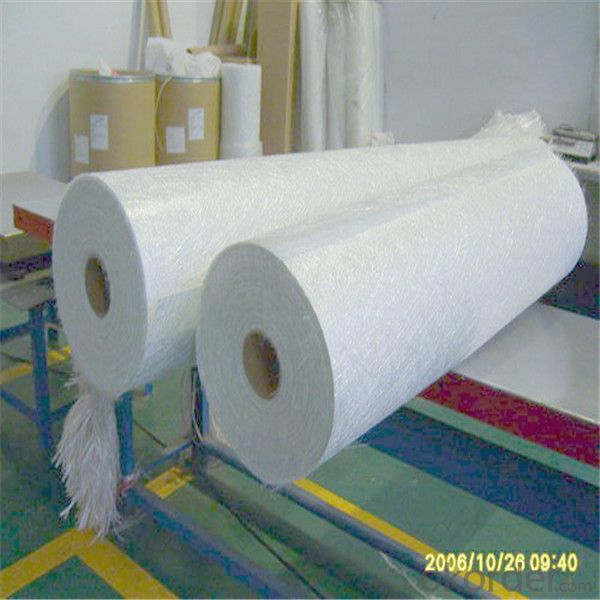
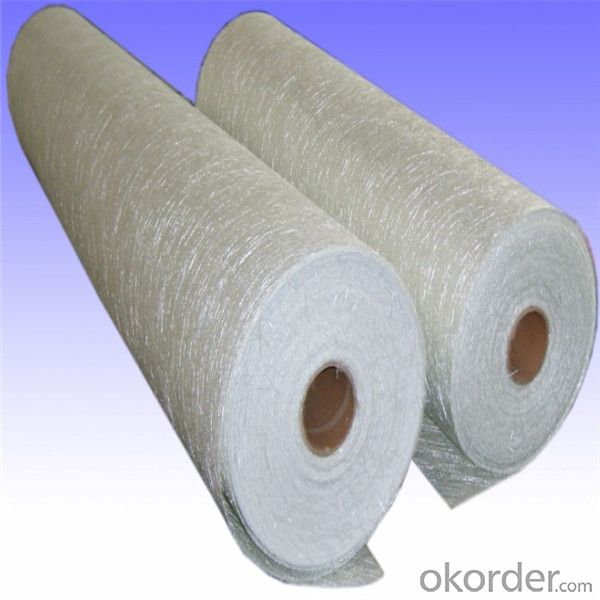
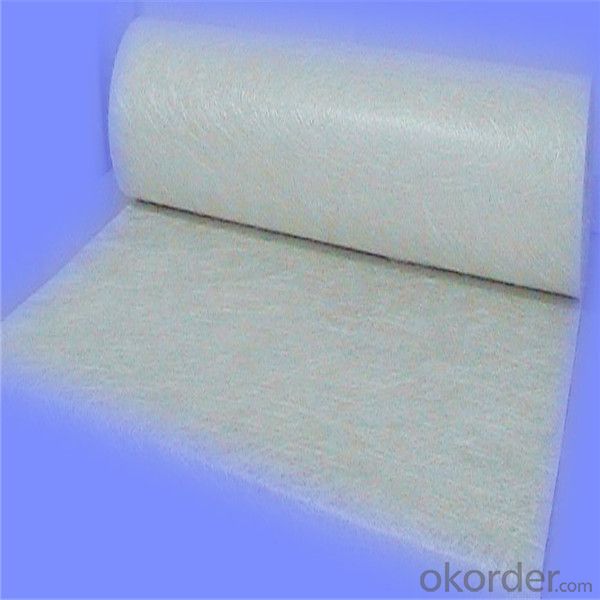
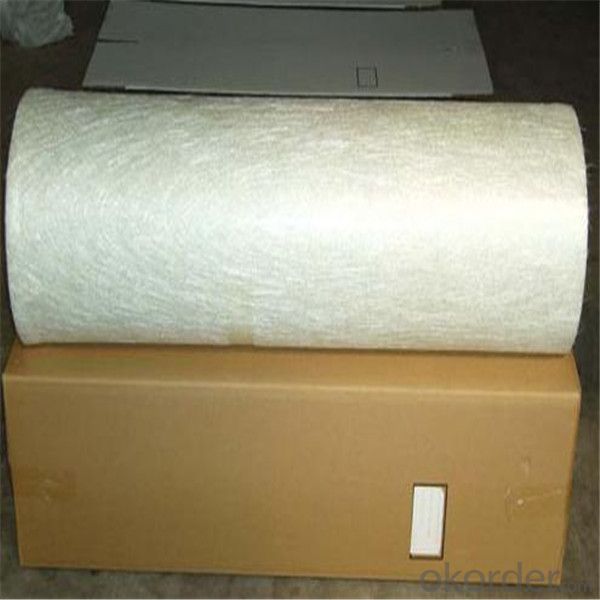
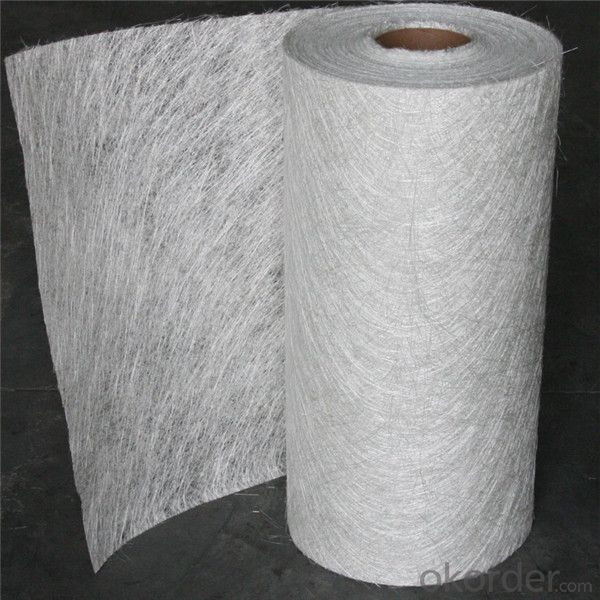
- Q: Can fiberglass mat tissue be used for wind turbine nacelles?
- Indeed, wind turbine nacelles can incorporate fiberglass mat tissue. This material, known for its lightweight and durability, finds wide application across various sectors, including the wind energy industry. Its exceptional mechanical properties, such as robustness, stiffness, and resilience against corrosion and fatigue, make it highly suitable for the nacelles of wind turbines. Moreover, fiberglass mat tissue possesses the capability to be easily shaped into intricate forms, rendering it an ideal choice for fabricating the complex components of wind turbine nacelles. In summary, the utilization of fiberglass mat tissue in wind turbine nacelles enhances their structural integrity, reduces their weight, and ultimately improves the overall performance and lifespan of the turbines.
- Q: What are the advantages of using fiberglass mat tissue?
- The advantages of using fiberglass mat tissue include its high strength-to-weight ratio, excellent dimensional stability, resistance to corrosion, and ability to provide reinforcement to various materials. Additionally, fiberglass mat tissue is easy to handle and can be easily molded or shaped to fit different applications, making it a versatile choice in industries such as construction, automotive, and aerospace.
- Q: Can fiberglass mat tissue be used for waterproofing?
- Indeed, fiberglass mat tissue has the potential to be utilized for waterproofing purposes. This particular material, comprised of fiberglass fibers, takes the form of a thin, non-woven substance. Its primary function lies in the reinforcement and provision of waterproofing attributes within the realm of construction and building applications. When combined with a waterproofing agent or resin, the fiberglass mat tissue can establish an impermeable barrier, effectively impeding the infiltration of water or moisture. Consequently, it proves to be a highly advantageous option for various undertakings such as roofing, basement waterproofing, and the installation of bathrooms or showers. Furthermore, the robustness and enduring nature of fiberglass mat tissue contribute to its resistance against cracks or tears, guaranteeing the longevity of its waterproofing capabilities.
- Q: What is the expected lifespan of fiberglass mat tissue in underground applications?
- The expected lifespan of fiberglass mat tissue in underground applications can vary depending on various factors such as the specific conditions of the underground environment, the quality and thickness of the fiberglass mat tissue, and the level of maintenance and care provided. However, on average, fiberglass mat tissue is known for its durability and longevity, making it suitable for underground applications. In general, fiberglass mat tissue is designed to be highly resistant to corrosion, moisture, and other environmental elements commonly found in underground settings. This makes it a reliable choice for applications such as underground pipes, tanks, and other infrastructure where protection against deterioration is crucial. With proper installation and regular maintenance, fiberglass mat tissue can have an expected lifespan of 50 years or more in underground applications. However, it is essential to note that this estimate can vary depending on the specific conditions and usage of the fiberglass mat tissue. To ensure the maximum lifespan of fiberglass mat tissue in underground applications, it is recommended to follow industry best practices, such as proper installation techniques, regular inspections, and addressing any issues, such as cracks or damage promptly. By doing so, the lifespan of fiberglass mat tissue can be extended, providing long-term reliability and durability in underground settings.
- Q: What is the weight range of fiberglass mat tissue?
- The weight of fiberglass mat tissue can vary depending on the specific product and its intended application. Typically, the weight range of fiberglass mat tissue can be anywhere from approximately 20 grams per square meter (gsm) to over 100 gsm. Thinner and lighter fiberglass mat tissues are commonly employed for insulation purposes or as a reinforcing layer in composite materials. On the other hand, heavier fiberglass mat tissues are generally utilized for more demanding applications like roofing or flooring. It is worth noting that the weight range may also be influenced by factors such as the type of resin used, the desired strength or stiffness of the final product, and any specific requirements or specifications for a particular project.
- Q: Can fiberglass mat tissue be used for repairing fiberglass bathtubs?
- Fiberglass bathtubs can be repaired using fiberglass mat tissue. This tissue is a flexible and thin material used to strengthen and reinforce fiberglass surfaces. It is commonly employed in the restoration and repair of various fiberglass products, bathtubs included. To create a durable and sturdy repair, the damaged area is covered with the mat tissue and a layer of resin. This procedure helps fortify weakened or damaged sections of the bathtub, restoring its integrity and preventing further harm. Nevertheless, the success of the repair hinges on the extent of the damage and the expertise of the individual conducting the repair. To achieve optimal results, it is advisable to seek professional advice or adhere to the manufacturer's instructions.
- Q: Is fiberglass mat tissue recyclable?
- Yes, fiberglass mat tissue is recyclable.
- Q: Is fiberglass mat tissue water-resistant?
- Yes, fiberglass mat tissue is water-resistant.
- Q: How does fiberglass mat tissue contribute to the strength and durability of composite materials?
- Fiberglass mat tissue enhances the strength and durability of composite materials by providing reinforcement and structural integrity. The mat tissue consists of randomly arranged fibers that are bonded together, creating a strong and flexible matrix. This matrix acts as a support system, distributing stress and load across the material, thereby preventing cracks and fractures. Additionally, the fiberglass mat tissue acts as a barrier against moisture and other environmental factors, protecting the composite material from degradation and ensuring long-lasting performance.
- Q: Can fiberglass mat tissue be used in corrosive environments?
- No, fiberglass mat tissue is not suitable for use in corrosive environments as it is not resistant to corrosion.
Send your message to us
Fiberglass Mat Tissue Chopped Strand Mat EMC100 100gsm
- Loading Port:
- Tianjin
- Payment Terms:
- TT OR LC
- Min Order Qty:
- 100 m.t.
- Supply Capability:
- 20000 m.t./month
OKorder Service Pledge
Quality Product, Order Online Tracking, Timely Delivery
OKorder Financial Service
Credit Rating, Credit Services, Credit Purchasing
Similar products
Hot products
Hot Searches
Related keywords
